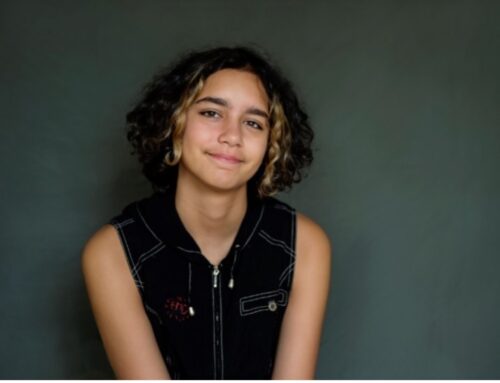For the last 19 years I have spent every hour of everyday thinking about the same thing. The first thought when I wake up in the morning is the same as my last thought when I go to bed at night. “What’s my blood sugar?” I have spent years of my life waking up every day trying to take control of a disease that is relentless; you never get a day off from type 1 diabetes.
I was diagnosed with diabetes in the summer of 1994. The first few years with it were manageable but as I continued to get older the disease became more and more challenging. When I was first diagnosed, I thought that as long as I took my insulin and ate right that the disease would be easy to manage. Unfortunately, living with type 1 diabetes is a lot like living on a roller coaster. So many daily factors can fluctuate without a moment’s notice, and although the ultimate goal is to maintain a “perfect” blood sugar reading, it is virtually impossible to do so. After years of trying to cope with this disease, I gave up. It became too much for me to manage alone and I slowly started to fall into some bad habits. I stopped testing my blood sugar and stopped taking my insulin. I was so tired of taking care of this demanding disease that I just wanted to have a break from it. But before I knew it, my entire life had snowballed into a situation that was completely unmanageable and I didn’t know how to pull myself out.
I spent five years completely ignoring my diabetes and was addicted to the weight loss associated with insulin omission. I knew that I desperately needed help but I had no idea how to explain everything that I was struggling with, not to mention that I barely had the energy to try. I was so scared of what had been happening to my body; after five years of extremely high blood sugars, my body was deteriorating piece by piece. My kidneys started to get holes from the protein being leaked through them, I had to get 16 root canals and have numerous cavities filled, and I had developed osteoporosis and a serious complication from it called charcot foot. My ankle bone collapsed from the osteoporosis, which caused me to be put in a cast for four years while I underwent numerous surgeries. Screws and pins were placed into my ankle and foot in an attempt to save it from collapsing even more. During the entire four years I could not walk more than a few steps without feeling pain.
The surgeries left large incisions that took an extremely long time to heal. I developed ulcers on the bottom of my feet that required skin grafts to heal, and I also developed diabetic retinopathy, which I underwent ten lasik treatments to correct. I also had to have surgery on my right eye to remove scar tissue and dead blood vessels. The amount of money I have had to spend on medical bills has drained me financially and if I did not have the support of my family, I guarantee that I would not be alive today.
Having my ankle collapse was the last straw for me. I had finally made up my mind that no matter how hard recovery was going to be for me, it had to be better than how I was currently living my life. After making up my mind to seek help, I began to see that there were very few doctors who understood what I was going through and none of the treatment centers available to me at the time were equipped with what I needed to recover. My only option was to create my own support system. I spent hours trying to find healthcare professionals in my area that did have knowledge on diabulimia and eventually I put together a team of doctors and psychologists, all of whom had some knowledge on diabetes and eating disorders. After months of hard work with them, I slowly started to recover. The deeper into recovery I got, the more I started to openly talk about my struggles and the more I began to realize just how many diabetics were struggling with the same issues as I was.
Diabetics have remained silent about this issue for far too long and I am pleased to see many of them starting to seek help despite their feelings of shame and embarrassment. I never want anyone to feel as hopeless as I did searching for help, which is why Asha Brown, her husband and I created We Are Diabetes: a company dedicated to helping type 1 diabetics struggling with eating disorders, isolation and overall diabetes burnout. We guide, support and encourage diabetics to get their life back in control. One of our goals is to minimize some of the anxiety and frustration that comes along with choosing recovery so that those who are struggling can focus on getting better! Looking back, I wish that I had known of a place like We Are Diabetes to direct me to a top of the line treatment center, like Walden Behavioral Care, so I didn’t have to go through all the anxiety of trying to do it on my own. Recovery is hard enough and I am happy to see that facilities like Walden understand the seriousness of this illness.
Erin Williams is the Co-Founder of We Are Diabetes. Erin holds a degree in marketing and is currently studying to become a nurse. She is intent on educating the general public about the dangers of diabulimia and is passionate about helping Type 1 Diabetics who suffer from diabulimia achieve a healthier, happier life.”





